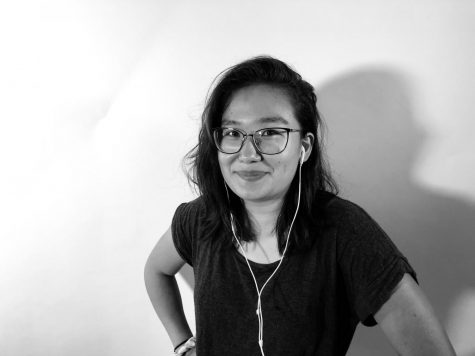Allocating, Allotting and Administering COVID-19 Vaccines
February 19, 2021
With around 40 million doses of COVID-19 vaccines administered in the U.S. so far, students and teachers at City High are moving up in line for vaccination.
“I’d hope to get vaccinated as soon as possible, but for now, I’m assuming that it will happen in April,” Ana Koch ‘21 said.
Dr. Ayers, an English teacher at City High, shares Koch’s sentiments.
“I’m looking forward to getting the vaccine,” Ayers, who will be getting the vaccine through the ICCSD process for teachers, said. “The sooner the better, as far as I’m concerned. The problem, of course, is there are limits on supply across the country.”
Dr. Lauris C. Kaldjian, Director of the Program in Bioethics and Humanities and professor within the Department of Internal Medicine at the University of Iowa, also acknowledged the limited supply of the vaccine.
“[While a vaccine shortage exists], disease trends… risk of exposure… and other factors shall be considered when sub-prioritizing Phase 1B populations while a vaccine shortage exists,” Kaldjian said, referencing the Iowa Department of Public Health’s (IDPH) website.
The IDPH outlines the vaccination process for people, like teachers, who are in the 1B prioritization group. Phase 1A consisted of health care personnel. Phase 1B includes people over the age of 65, those who are at high risk of exposure, and those who are more vulnerable to the disease. More specifically, it focuses on first responders, childcare workers, frontline essential workers who live/work in congregate settings, individuals with disabilities and their care staff, government officials and staff, health and safety inspectors, and correctional facility staff and individuals incarcerated.
After Phase 1B, Johnson County Public Health’s timeline is to move on to prioritization group 1C.
“The CDC refers to people aged 16 to 64 years with underlying medical conditions as part of Phase 1C,” Kaldjian said.
Steve Dodge, a teacher at City High, has already received a vaccine.
“I got an email telling me I was scheduled to get my first vaccine dose Friday, February 5 at 8:25 a.m.,” Dodge said. “The University of Iowa called and asked some basic health questions a couple of days before and I went to the U of I Quick Care Clinic at Sycamore Mall. I checked in, waited in line for a couple of minutes, and then went to a room where a nurse gave me the shot.”
Dodge was given his first dose of the Moderna vaccine and was scheduled to receive his second dose four weeks later.
“I think there is always a little risk with a new vaccine,” Dodge said. “I have a slight ache in my wrist and fingers of the arm I got the shot in but other than that I feel fine.”
With the vaccination of teachers underway, students above the age of 16 who have certain medical conditions are to be vaccinated in the next prioritization group.
“My understanding is that students with underlying medical conditions, like other adults with underlying medical conditions, would be prioritized before those at the same age who do not have such conditions,” Kaldjian said.
Because of her job, Koch was also meant to receive her first dose of the Moderna vaccine but was unable to due to the age restrictions on the vaccine.
“I work in a small daycare center and since it’s considered essential work within the state of Iowa, the staff members are able to receive vaccinations,” Koch said. “I was supposed to be getting my vaccine [on February 4] for work, but the organization I’m at is only being offered the Moderna vaccine. I have to wait until I’m 18 to get it. I love my job, but it can be scary not knowing if I’ve been exposed to someone who has had the virus. It’s definitely still important to continue social distancing after being vaccinated though because you can still spread the virus to other people.”
With the move to 100% in-person school, Dodge also feels more comfortable at work after being vaccinated.
“I will still be careful about being within six feet but I will not be as worried. I will feel better about being in a classroom with twenty-five plus people most of the day when we go to 100% in person,” Dodge said.
Koch does not plan to attend school in person this year, even when she receives the vaccine.
“I feel safer learning online, especially with in-person school being 100% soon. I don’t believe that getting vaccinated means I’m free to go out and continue on like normal. I still have to be cognizant of my activities and how to protect my family,” Koch said. “The vaccination would protect me, but not other people.”

































